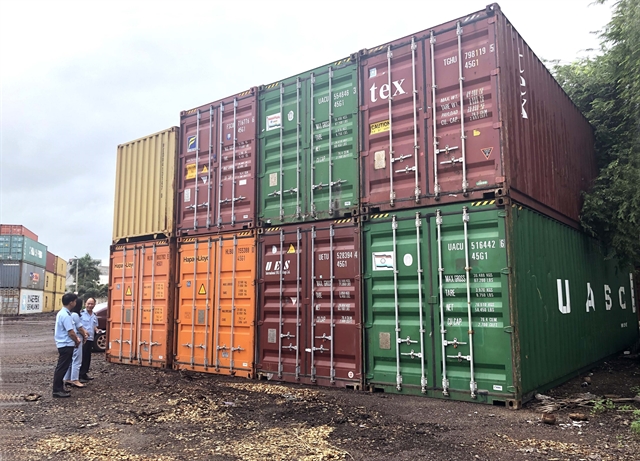 Society
Society


|
| Ownerless containers of scraps stopped at Quy Nhơn port in the southern province of Bình Định. — VNA/VNS Photo Nguyên Linh |
HÀ NỘI — As of June, more than 500 containers of waste which failed to meet Việt Nam’s import requirements have been re-exported this year, said Việt Nam’s Maritime Administration on Sunday.
Statistics from customs agencies showed that nearly 12,300 scrap containers remain in Việt Nam’s seaports. About 7,450 of them have been stuck there for more than 90 days, meaning State agencies are permitted to take any measure to deal with them at their discretion, including auctioning the quality scraps and disposing of subpar quality scraps that pose an environmental threat.
Under the maritime administration’s instructions, imported scrap containers can be unloaded only if their owners have certificates that prove they are qualified to import scraps, including environmental permits and the allocation of import quota.
After China banned imports of 24 types of scraps last year – since then, the ban has expanded to cover 32 types of solid waste – the amount diverted to Việt Nam and other ASEAN countries has significantly increased, raising fear of becoming the world's dumping ground.
Local firms have been importing scraps from many different countries as materials for production or recycling, but many are forging import permits to illegally bring waste into the country.
Last year, Prime Minister Nguyễn Xuân Phúc called for urgent measures to improve the management of imports of waste as production material.
The PM directed the Ministry of Natural Resources and Environment not to issue new scrap import certifications or extend the validation of existing certificates.
The ministry only considers granting a permit when the direct importer can prove demand for and ability to use the scraps in goods production.
Meanwhile, the Ministry of Finance was tasked with directing customs agencies to hasten clearance for scrap containers of firms or individuals with valid certifications.
The Ministry of Industry and Trade is in charge of strengthening the inspection and monitoring of the trade and usage of scrap imports. — VNS